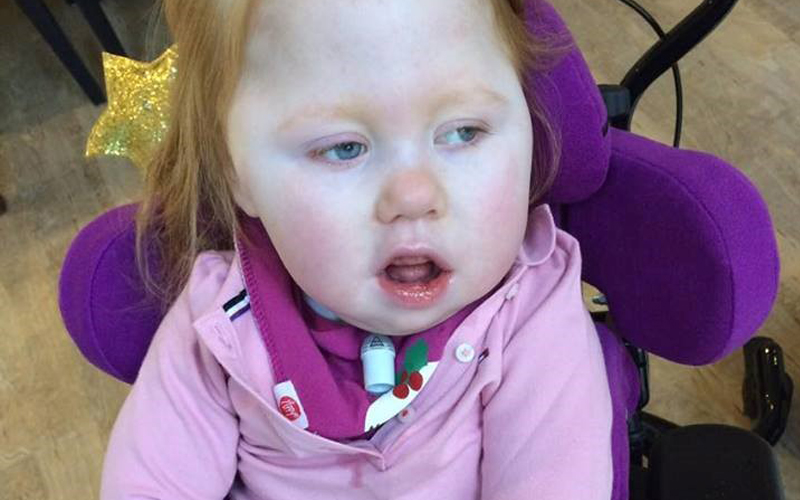So why is it so hard to sometimes find the right ones?
I’ve become more aware of this since having Heidi.
11 days overdue, after a healthy pregnancy, Heidi arrived just in the nick of time to be the best Mothers’ Day present I could have wished for.
Unfortunately she suffered an HIE (hypoxic ischemic encephalopathy) incident soon after birth, meaning she was deprived of oxygen and has suffered damage to the brain as a result.
My inability to find the right words started almost immediately.
How do you tell your mum that her long awaited grandchild has arrived, but has been whisked off to another hospital for cooling treatment? How do you text your friends when you can’t use the standard “Mum and baby doing well” line?
It must also be hard for others to find the right words to use when they first hear that things haven’t gone to plan.
Is it appropriate to say congratulations on the birth of your baby? Could they be confident enough to say that everything would be fine? Should they say anything at all?
Over the months, since Heidi was born, I have found myself choosing my words carefully.
When people ask how she is doing, I like to say that she is developing, or gaining weight really well, or amazing us each day.
I was conscious at first that if I said “she’s doing great” that people might think she was unaffected, or get a surprise when they saw her with tubes and oxygen.
I’m not in denial about the challenges we face, but I don’t want these to define the gorgeous little girl that she is.
It’s sometimes words from well-meaning strangers that can catch you off guard; the person who saw Heidi’s feeding tube and asked what was wrong with her, or the lady waiting next to me in the pharmacy who asked me if Heidi would still develop “normally”.
Those words hit me hard at the time, and whilst I was of course polite in my response, inside I wanted to shout that there was nothing wrong with her, she was Heidi-perfect, and that she would develop to the best of her ability and in her own time.
I fully understand though that people don’t mean to upset or offend, and that many people struggle with finding those right words, just like I do.
Advice for anyone who finds themselves in that situation?
Admit you don’t know what to say.
Acknowledge that you can’t find the right words.
Give a warm smile or a hug instead, they are much harder to misinterpret!
